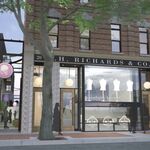KyleBlanchett
Active Member
Kingsway Mall has been included in a lawsuit launched by HBC against Oxford (OMERS etc) claiming the mall (among many other malls) failed to make upgrades or launch marketing initiatives to reassure shoppers it was safe to return during the pandemic.








